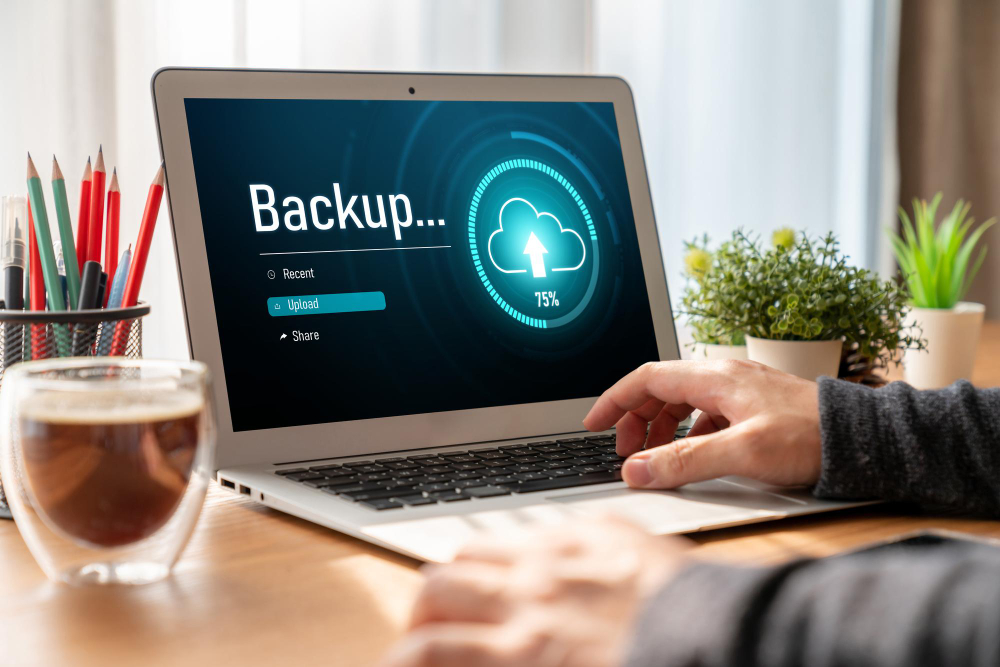Leakware is a malicious threat where cybercriminals steal sensitive information and threaten to leak it unless a ransom payment is made.
This cyber attack often involves malicious software that infects systems to access sensitive files, putting personal and corporate data at risk. The attackers then demand a ransom payment to prevent the exposure of this information.
So, how can you protect your sensitive information from leakware attacks?
Read on to learn everything about leakware and the steps to safeguard your data!
What is a Leakware?

Leakware, previously known as doxware, is a new version of ransomware that adds a dangerous twist.
Instead of merely encrypting files, it focuses on exfiltration or stealing sensitive data from targeted victims. These attacks are often premeditated, with cybercriminals conducting surveillance to identify weaknesses and high-value data.
The stolen information is then used to threaten exposure unless a ransom is paid.
This attack once happened in South Africa in a case called the Johannesburg attack, where the attackers threatened to leak citizen’s data.
Compared to doxware, which only targets individual/personal data, the scope of leakware is more advanced.
How Does Leakware Work?

Leakware operates as a dangerous cyber threat where attackers steal confidential, high-value data and threaten to leak sensitive information unless the victim pays a ransom.
This attack focuses on unauthorized data exfiltration and exploiting computer system or platform vulnerabilities.
These attacks often begin with malware designed to infiltrate systems, sometimes using trojans or other strains. Once inside, the attacker threatens to disclose the victim’s information, causing reputational damage and potential regulatory issues.
Victims are typically coerced into paying a Bitcoin ransom to avoid disclosure.
The Dangers of Leakware

Going far beyond financial losses, these are some other dangers of leakware for your organization or businesses:
- Data Theft: Leakware exfiltrates critical information without permission, putting privacy and security at serious risk.
- Reputation at Stake: A leak of confidential details can destroy trust and harm your credibility.
- Legal Troubles: Data breaches may lead to compliance violations, regulatory penalties, or even lawsuits.
- Financial Pressure: Victims often feel they must pay to avoid exposure, sometimes costing millions of dollars.
How Can Businesses Prevent a Leakware Attack?

So, how can you protect your business from these attacks? What are the key prevention steps? Follow this guide:
Strong Email Security
Phishing emails are a common entry point for leakware attacks. Hackers often use spam messages to trick employees into revealing sensitive personal data or downloading malicious files.
You can enhance protection by deploying robust email filtering tools, blocking spam, and training employees to recognize phishing attempts.
Endpoint Detection and Response (EDR)
EDR tools monitor devices like hard drives and networks, quickly identifying suspicious activities or potential virus infections. Train the cybersecurity team to support the deployment.
Adopt Cloud Services
Cloud services offer advanced protection for personal data through secure backup and encryption protocols. Clous platforms reduce the risk of losing information during a leakware attack.
Many providers also include integrated antivirus and fraud detection tools.
Use Cybersecurity Best Practices
Enforcing cybersecurity best practices is critical for protection against leakware. You can do:
- Regular backups and updates
- Strong password policies
- Consistent decryption key management
- Use antivirus tools
These efforts can limit damage in case of an attack.
Prioritize Employee Cybersecurity Training
Human error is a significant factor in leakware attacks. A study reveals that data breaches caused by human error cost businesses an average of $3.36 million per year.
Regular cybersecurity training helps employees detect phishing attempts, avoid spam, and protect personal data. The main programs should emphasize the importance of backups, password security, and recognizing virus threats.
Related Terms and Concepts to Leakware in Cybersecurity

Check out these leakware-related terms and concepts to familiarize yourself with this attack.
Ransomware
This is a type of malware that locks files and demands payment for access. Leakware is an aggressive variant of ransomware that threatens to expose stolen data if the ransom isn’t paid.
Data Breach
A data breach happens when sensitive information is accessed or stolen without authorization. Leakware combines data breaches with extortion, using stolen data as leverage. Learn more about types of data breaches.
Phishing Attacks
Phishing attacks trick victims into revealing credentials or downloading malware. They are often the starting point for leakware, giving attackers the access needed to steal and exploit data.
Frequently Asked Questions
How does leakware differ from traditional ransomware?
Traditional ransomware locks your files and demands payment for access. Meanwhile, leakware takes it further by stealing sensitive data and threatening to expose it unless a ransom is paid.
What kind of information can leakware steal?
Leakware focuses on sensitive data such as personal details, financial information, or confidential business files.
How can I protect myself from leakware?
Implement secure email practices, use trusted antivirus software, back up your data regularly, and enforce strong password policies.
Conclusion
In conclusion, leakware is a growing cybersecurity threat that risks sensitive information and reputations. This malicious approach demands solid protection through strong security practices and advanced tools like EDR and cloud solutions.
So, how prepared is your business to handle a leakware attack?
With leakware being so tricky, teaming up with a cybersecurity agency is crucial to stay ahead of threats and protect your data. Contact Fluxgate today for expert guidance and comprehensive solutions for your business!
